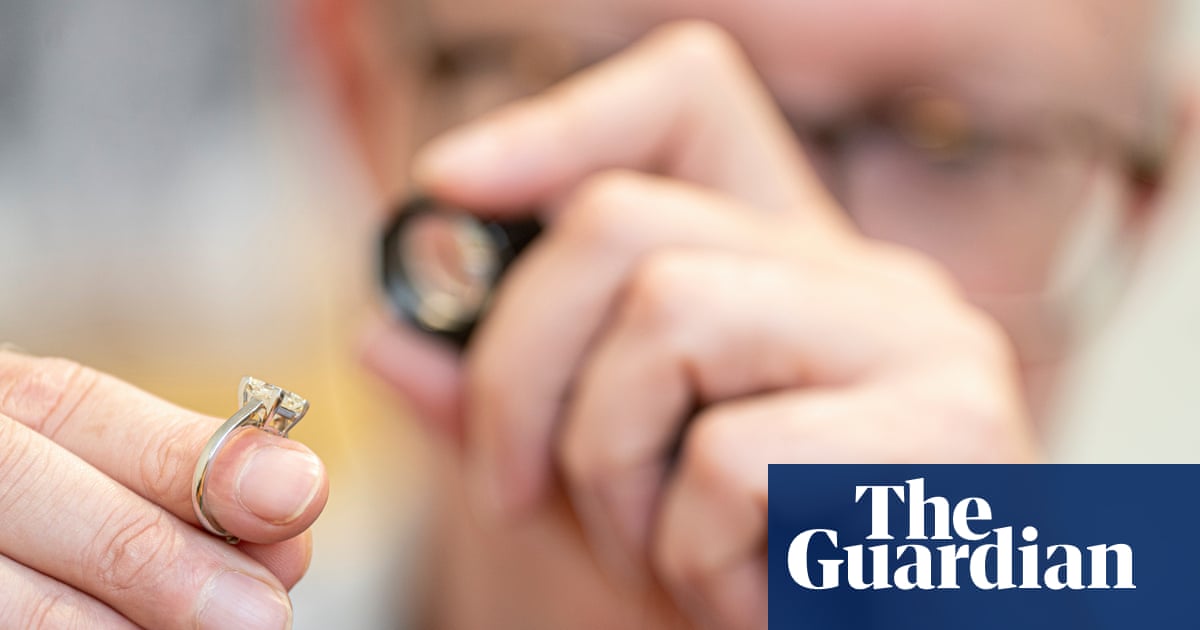Hermès bags and Picassos: business booms for Britain’s posh pawnbrokers - 4 minutes read

‘You wouldn’t think somebody with a £300,000 watch would need to borrow £20,000 but we have seen it a few times. It surprises you. Everyone has their cashflow issues,” says Jim Tannahill, the managing director of the luxury pawnbroker Suttons & Robertsons.
The price of gold has jumped by a third since May 2019, as it tends to in times of uncertainty, so owners can borrow more against their trinkets. Diamonds have risen 12% in the past two years and, while prices have dipped in recent months, vintage watches are still up nearly 50% on two years ago amid supply chain hold-ups.
At the lower end of the market, with families struggling to pay everyday bills, business has been brisk. H&T Group, a mainstream chain, said lending secured against valuable items such as watches or jewellery was at record levels, in a trading update published last month.
But high-end lenders are busy, too, as clients seek ways to fund business investment or summer spending sprees now that travel restrictions have lifted. At Suttons & Robertsons, where the average loan is about £5,000 and some run into the hundreds of thousands, business is up 30% since January. Founded in 1770, the chain has four outlets in central London, with shopfronts in South Kensington and other well-heeled districts.
It is not cheap to borrow: interest rates vary from 3.5% a month for a loan of more than £50,000, to 6.5% a month – just over 93% a year – for loans under £1,000. However, deals can be done swiftly without reference to credit histories or lots of form-filling, with background checks on the object pawned more important than on its owner.
“I have never seen anything like it,” says Tannahill. “We have been busy in previous times when there has been a gold rush, and you tend to see people borrow money or selling things, and the banking crisis that drove a bit of business, but nothing remotely like this.
“With inflation, people are having to pay more for a weekend away or materials for work. Many of our customers are small business owners who have cashflow issues. They need to buy materials in construction, for example, and the price of that has shot up and people are getting caught by surprise.”
He says borrowing against watches is on the up, partly as a result of the increase in their value during the past two years. The business lends against a wide range of items, from jewellery to fine art, wine collections and even cars, with 90% of loans redeemed.
The group works with specialists, such as wine dealers and auction houses, to help it value and store items not suitable to go in its safe.
A day in the life of a South Kensington broker
Rachel Fox, a qualified gemmologist and pawn shop manager, begins her day with an inquiry about a Cartier Tank watch in the window and has her first call on a potential pawn by 09.30. A client wishes to pawn an old master and a Tracey Emin in order to buy further artworks. By 11am the deal is done.
An hour later, another customer brings in a couple of diamond rings they would like to borrow against, but these do not meet the broker’s minimum value of £500 for jewellery.
Just half an hour later, a client brings in some Hermès handbags to be evaluated for a potential loan. Fox inspects them for authenticity and looks at comparable auction sales records to assess their value.
In the afternoon, Fox deals with a client who wants to borrow £40,000 against a collection of watches that the store has previously dealt with. Last time Suttons & Robertsons said it could not lend more than £25,000, but a surge in the price of secondhand watches takes that to £30,000 and a deal is struck, with the bank transfer set for the next morning.
There is just enough time to call the handbag owner to offer her a loan and a deal is agreed by the 16.30 cut-off. “This is a great example of how we can often complete a valuation, agree the loan and transfer the sum all in one day,” says Fox.
Source: The Guardian
Powered by NewsAPI.org